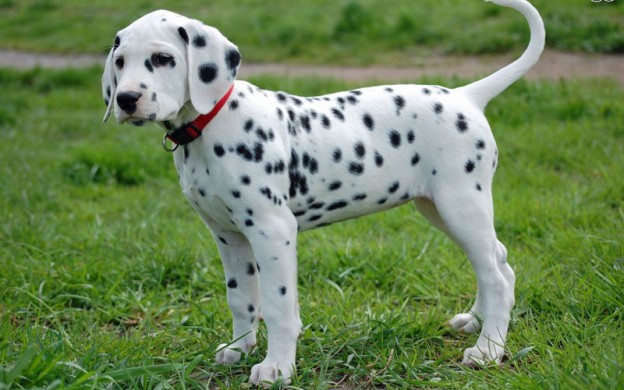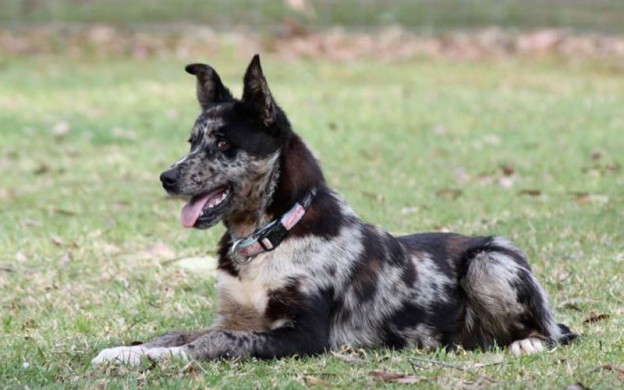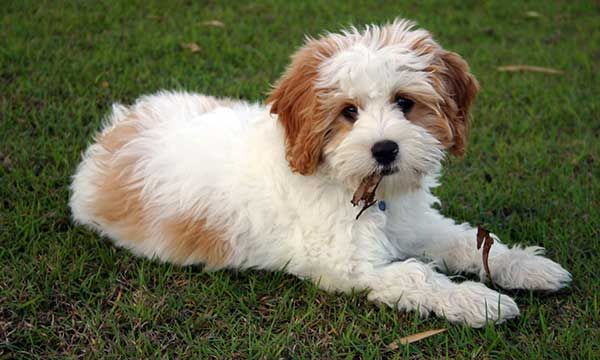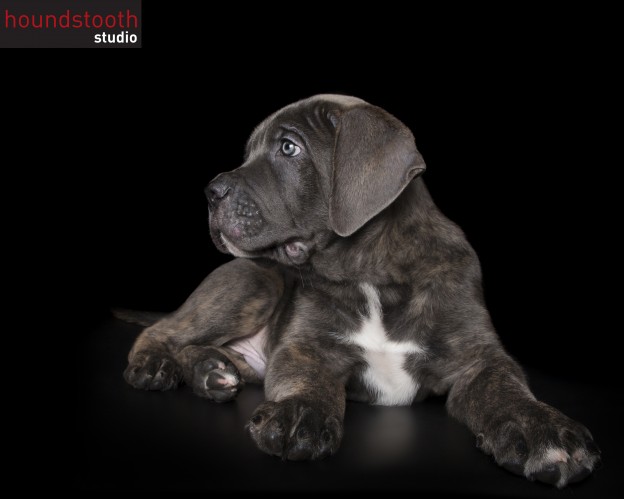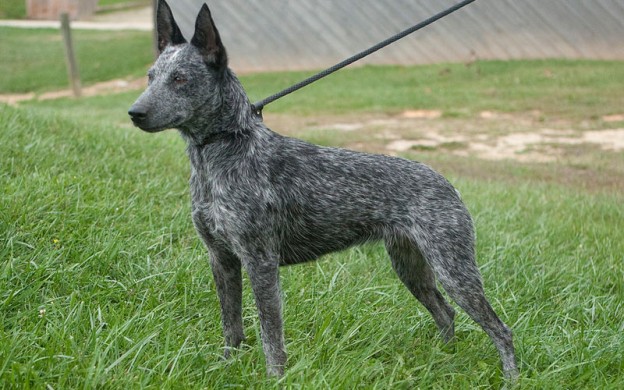
Poodle breeds have good temperament, are intelligent and are great pets for allergy sufferers.
Facts
Temperament: Good temperament. Extremely intelligent and likes to please owner so will quickly pick up commands. Needs challenges and gets bored easily if not given agility or obedience exercises. Loves human company. Great house dogs despite large size but need discipline and guidance. They love children and will romp and play very happily with them. Puppies do not mature until 18 months old.
Suitability: A great dog for allergy sufferers and asthmatics who have trouble with dog hair because poodles do not drop hair and the mandatory grooming regime keeps dust and pollen out of their coats. The dog suits families, couples and singles. Suitable companion for all age groups if obedience trained but older people may prefer a trained, mature dog because it is less boisterous than a puppy.
Favourite Activities: Anything is possible with a poodle if you get it between eight and 12 weeks of age and start training it. They have many talents but on a light-hearted level, splashing around in the water is something these immaculately coiffed dogs are more than happy to do. This all goes back to their breeding gun dog and water retriever. If given the chance they love to herd or chase ducks; they also love to entertain and play with their humans.
Backyard requirements: This dog is so intelligent it will adapt to any kind of circumstances you live in, whether that’s an apartment or a mansion on an allotment. Despite their size they are an excellent, clean housedog and will be happy if they have your company and receive regular exercise.
Watchdog Qualities: being alert, loyal and intelligent, these dogs are great watchdogs and they look out for their family members. But their gentle nature means they are more likely to lick an intruder to death than guard your property.
Standard
The Standard Poodle, like its smaller cousins, literally sets the standard for companionship for many dog owners. Fun loving and highly intelligent, this breed delights in pleasing. The warm, loyal personality engages people. And combined with strength and aristocratic looks, Standard Poodles are among the worlds most loved dogs.
Beyond the glamour clips and the need for grooming, these dogs are surprisingly down to earth and funny. Many owners delight in the breeds sense of mischief and humour and there are amazing stories of the dogs awareness of owners needs, such as the Poodle who hid the car keys in a game to prevent a very tired breeder from driving home after a dog show!
The Standard Poodle is a large, active gun-dog originally bred for hard work. It is also the original Poodle. Despite the popular belief that Poodles are French, the truth is rather less certain. The breed probably originated from a water spaniel in Germany and the name derives from the German word pudelin, which means to splash. What is certain is that the Poodle is the worlds oldest water retriever, circus performer and truffle hunter. They are still used for hunting in some parts of the world.
The intelligence and adaptability of the breed has led it into a wide range of careers.
In the past, Standard Poodles have been used to pull milk carts, they have been messengers during times of social unrest and they have excelled as performers in the circus. Today, Poodles are still used for a variety of tasks. In fact, there is even a website dedicated to promoting an awareness of the breeds impressive capabilities, called Versatility in Poodles.
These dogs shine wherever intelligence and adaptability are important attributes and they make equally good hospital therapy dogs, hunting dogs or loyal companions. The standard variety is ideal for those individuals who prefer a larger dog but like the Poodle temperament.
About that coat…
The Poodle coat is composed of individual hairs which never stop growing, similar to that of human head hair. The Poodle puppy has a soft hair coat which usually falls in gentle waves to soft curls. As the puppy grows, so does the coat. Sometime between nine and 16 months the coat begins to undergo a change in texture. During this coat change the coat tends to mat easily and if it is maintained for conformation showing, it requires frequent brushing to keep the mats out and the dog comfortable. Once the coat change is complete the brushing can often be decreased to once a week, depending on the activities of the dog and its individual coat type. Most adult Poodle coats will naturally form cords if not brushed out after a bath. It is usually very difficult to care for a corded Poodle coat as it takes a very long time for the cords to dry, especially in humid climates.
Ironically, at shows, the dog with the fluffy pompoms, sometimes sniggered at at dog shows, was not bred to be a canine of leisure. In fact, the elaborate hairdo itself was developed for practicality, not fashion. Working as a water retriever in cold water was hard enough, but with an unclipped thick and endlessly growing coat, it could be deadly to a swimming dog. The thick waterproof coat was a very heavy burden when wet so the hair was trimmed from those parts of the body where it did not serve the essential purpose of keeping the dog warm. That’s why the rump was bare while the vulnerable chest, joints and kidneys remained covered by insulative hair!
Similarly, the tradition of coloured ribbons in the hair that continued to be used in show dogs until the 1970s dates back centuries when these dogs were retrievers of waterfowl. As most of those dogs were black or white at that time, the coloured ribbons identified the dog to their owners.
Poodle grooming books usually have detailed photos and drawings of the various Poodle clips. So good hair really is a must for Poodles simply because even when they are sleeping that hair is growing and growing.
They need regular haircuts and the kind of clip probably depends on what your dog is being asked to do, be it family pet or champion in the ring or the water retriever of old.
Selecting a healthy puppy
All recognised breeds have certain health problems and the Poodle is no different. Among the more common hereditary health problems diagnosed in all three Poodle varieties are the genetic disorders hip dysplasia, PRA and cataracts (leading to blindness) and epilepsy (seizures). The best way to discover if your intended puppy is free of such problems is to ask for a written report with the results of x-rays, blood tests, eye examinations and punch skin biopsies for the sire and the dam of the puppy. Most breeders will be delighted to answer any questions about the pups health.
Remember also that Poodles take about two years to mature so you will have a puppy with puppy behaviour for quite a while. Regular obedience training will help you develop a good relationship with your little pooch but you must be prepared to put in the work to keep your dog happy and healthy. That means exercise, grooming and companionship.
Poodle enthusiast Sharon Williamson says there are several important things to teach your new Poodle puppy.
A Poodle puppy must be taught not to touch or eat things that don’t belong to him and to help your Poodle to grow up confident and proud, early socialisation is very important, says Sharon, adding that people contact is all important to this loyal breed.
They are wonderful as a family companion and the Standard is definitely a protector, she says. The Poodle is like another person and will see itself as an important part of the family.
Sharon describes the breeds temperament as generous, proud, happy, playful and intelligent. Her dogs are a great source of joy to her and she says that you too can share that joy as long as you have time and inclination to look after the coat.
Sharon adds that this intelligent dog will also get along with existing dogs and other pets as long as introductions are done carefully.
We have a Poodle and a Chihuahua and together they’re a funny pair, she laughs.
So if you’re thinking of buying a Poodle, the best advice is to know what you want and why, and contact a breeder to find the right Standard Poodle for your needs.
There is an enormous amount to enjoy about these dogs but they do require quite a lot of effort to groom, so don’t buy on impulse.
Toy Poodle
Put a Toy Poodle in your life for just a short time and you’ll soon wonder how you ever managed without one in the first place. Elegant, extremely cute and with the darkest eyes brimming with expression, this breed gives years of pleasure to those lucky enough to have one as part of the family. Ask any Toy Poodle owner about this pooch and you’ll open a floodgate of stories about extreme loyalty, super intelligence and absolute devotion.
Toys are like little people, says Sydney-based breeder Pam Brennan. They are more in tune with humans than any other breed I know. They are just beautiful!
The Toy Poodle is one of three poodle sizes, the others being the Standard and the Miniature. The Toy and the Miniature were bred down from the Standard, but the three are considered one breed and judged by the same breed standard.
While the Poodle is sometimes considered an almost snobby or arrogant dog, one which often sports the strangest of haircuts and seems preoccupied with its appearance, the truth is that this is a strong and agile dog which was used prolifically as a retriever of water fowl, the dogs strange haircut a deliberate move to facilitate the breeds retrieving abilities in thick brush and water. The clip would lighten the Poodles coat in water but patches of hair would be left longer over joints and major organs to protect them from the cold.
The Toy Poodle became renowned for its ability to sniff out truffles in European woods and although today it is mostly a companion dog, its great intelligence and retrieving skills should not be overlooked.
According to Pam Brennan, the Toy may appear fragile but its far from that. This is a hardy breed, she emphasises, with a solid body and strong legs. And as for its reputed intelligence: The Poodle is said to be the most intelligent of all dogs, she says. It is definitely a highly clever animal and learns very quickly.
Experts strongly recommend early socialisation and training for Toys as their reputed intelligence can lead to misbehaviour. While not all Toys are yappy, training can teach those that are to control their bark. They can be reserved with strangers and need to get used to being with other dogs. Because they are so clever, however, they learn quickly and often excel in the sports arena.
Toys are especially known for their extreme loyalty and will stick by their owners side through thick and thin.
Mine follow me everywhere, says Pam. They hate being outside and want to be buzzing around with me wherever I go. In fact, experts emphasise that the Toy differs from other Poodles in that it is very much a people dog and needs to be kept inside with its owner, not left outdoors on its own. Similarly, the Toy should be watched around young children and certainly does better with the older, more responsible child. While Pam points out that her Toys are wonderful with her nine grandchildren, aged three to 13, she doesn’t advocate leaving youngsters unsupervised.
We often make the children sit on the ground so they are on the same level as the dog, she says.
Carol Vimpany has shared her life with Toy Poodles for more than 20 years and reiterates that Toys are more like little people: There’s not a lot of dog in the Toy; they see themselves as people, she says.
Clearly a great lover of this breed, Carol is fastidious about her Toys and will only keep a small number of dogs at one time at her kennel. She insists the Toy needs to stay within the home environment and to truly give them what they need, 10 at a time in her home is the maximum for her!
It does get quite difficult to say goodbye when I place a dog, says Carol, but I often keep in contact and sometimes visit to celebrate a birthday.
Carol emphasises that this breed is better suited to older people or grown and half-grown families, and says if you’re looking for a dog that’s great with the kids, this wouldn’t be the breed for you.
She also points out that prospective owners need to be aware that the Toys profuse, curly coat needs clipping every six to eight weeks, and it is high-maintenance if you choose to show your Toy. Because the coat needs such regular care and the Toys hair like human hair – grows thickly and quickly, many Toy owners choose professional groomers for regular clipping, having nails and ears checked at the same time. However, clipping can be done by owners themselves once they have learned the correct procedure.
But this mass of curls does bring with it some precious advantages. People who suffer from asthma and other allergies apparen’tly remain unaffected by the breeds coat, a godsend for those animal lovers unable to own a pooch because they react to the coat of so many dogs. Similarly, the Poodle does not drop hair which means a cleaner house for Poodle owners – and has no smell, as the Poodle coat has no doggie odour.
The Toy is a convenient size for those looking for a smaller dog. They grow to about 25cm in height and weigh about three to four kilos. Their beautiful curly coat comes in a rainbow of colours including white, brown, apricot, cream, red, blue and grey.
While today its an overall healthy breed, the Toy used to suffer a lot from inherited Progressive Retinal Atrophy (PRA), a debilitating eye disease which only shows up in a puppy after its two years old. A concerted effort was made to breed out this scourge from Toy populations and all good and responsible breeders will check their stock regularly. Prospective buyers should ask to see eye certificates of a puppys paren’ts.
Both Pam Brennan and Carol Vimpany predict they will remain Toy owners for many years to come, convinced this is a one-in-a-million pooch.
There are not too many people who will buy another breed once they have owned Toy Poodles, says Carol. Often, they will progress from owning Standards, to Miniatures and finally settling for Toys. As for myself Im hooked! Ill definitely be sticking with this breed.
Breed Care
Daily: Brushing your poodle every day is a must even if it does not have an exotic clip.
Weekly: Obedience classes will make your puppy into a great companion in no time.
Fortnightly: Baths when necessary
Monthly: Clips are necessary every month to keep the thick non-shedding coat in good condition.
Regular: Ears need to be regularly plucked. This dog was bred to hunt so it benefits from regular exercise and agility and obedience training.
Hereditary diseases: Hip Dysplasia – a painful hip condition that plagues many large breeds. If possible, check the medical records of the dogs paren’ts up to four generations back. Can also suffer from Progressive Retinal Atrophy (PRA) and epilepsy.
Breed Contacts
Poodle Club of NSW Inc: Puppy Inquiries (02) 4575 1959
New South Wales: 1300 728 022
Queensland: (07) 3252 2661
Western Australia: (08) 9455 1188
Victoria: (03) 9376 2255



